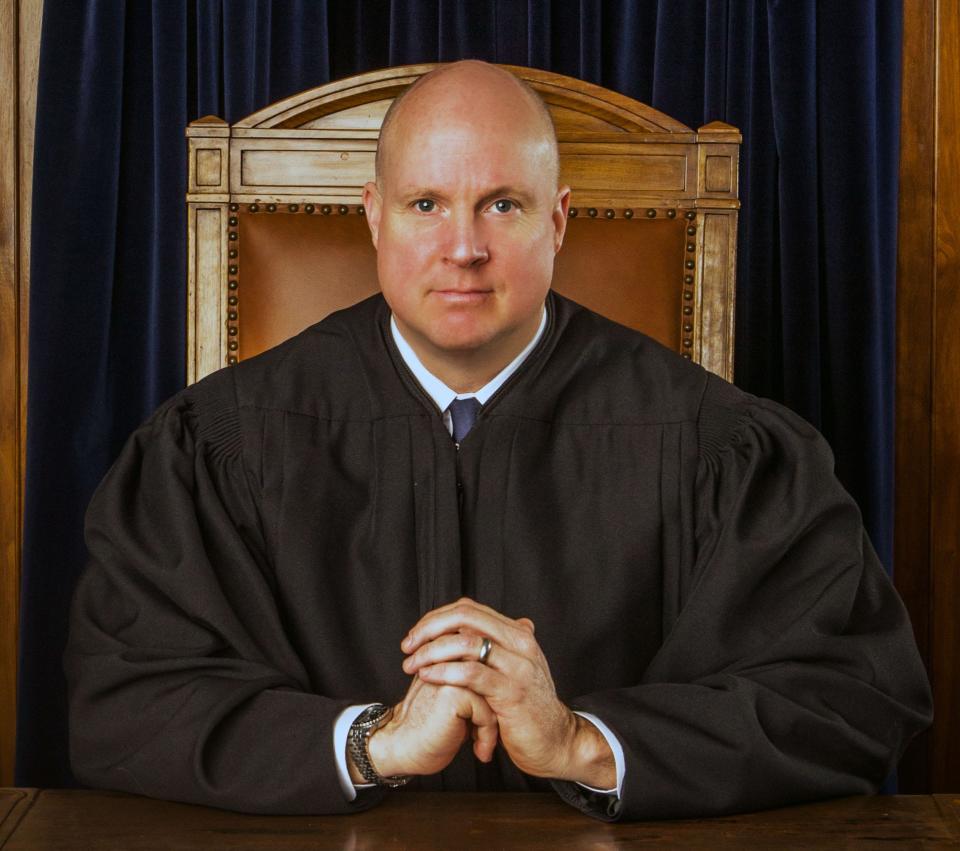Supreme Court program allows students to learn about the judicial process
- Oops!Something went wrong.Please try again later.
- Oops!Something went wrong.Please try again later.
This year is the sixtieth anniversary of the federal Civil Rights Act of 1964. President John F. Kennedy proposed this legislation in 1963, but he was assassinated before its enactment. The legislation became a priority of his successor, President Lyndon Johnson, who signed it into law one year later. In 1969, Governor David Cargo signed House Bill 142 and thereby enacted the New Mexico Human Rights Act. This state law protecting individuals from discrimination is the subject of our Court’s fourth annual “Rule of Law” program. The goal of the program is to educate middle school, high school, and college students on the judiciary’s role in our democracy and how the rule of law secures a just and civil society. In previous years, we held oral argument in Las Cruces and Española. This year we will hold argument at Smith Brasher Hall at Central New Mexico Community College (CNM) in Albuquerque on Monday, April 29, 2024, at 10 a.m.

The matter before the Court is Johnson v. Board of Education for Albuquerque Public Schools et. al.. Here, a student brought an action under the New Mexico Human Rights Act, alleging her teacher’s conduct during a class on Halloween violated her protected rights. The case raises the important legal question of whether a public secondary school is a “public accommodation” under the New Mexico Human Rights Act and, therefore, subject to a lawsuit. The briefs and oral advocacy reveal lessons about the New Mexico Human Rights Act and the way a judge interprets the words in a statute that gives meaning to the intent of the legislature. Observing live courtroom advocacy also teaches students that there are reasonable positions on both sides of an issue and that civil discourse, through rational thought, careful deliberation, and adherence to the rule of law, are the most effective means of resolving disputes like the one before the Court in April.
Our Court staff provides written materials for students and teachers to review ahead of time. The materials summarize the issues in the case and include a lesson plan and background on federal and state civil rights legislation. After argument, while the Court deliberates, attorneys for the parties in the case will remain in the courtroom to answer questions. We ask the students to think deeply and identify the principles of constitutional government raised by the advocates and Court. We explore how civil debate, rather than threats or rancor, creates a better environment for thought and deliberation. Those unable to attend the oral argument in person can watch a live stream of the proceeding. Real-time Spanish translation will be provided. Additionally, members of the Court are committed to visiting as many schools as our schedule permits. If students wish to learn more about the judicial process and our role in the democratic system, you may request that a Justice meet with your class to discuss the case, either in person or virtually.
This initiative fosters a deeper appreciation for the legal system that protects our rights. Please join us in advancing civic education. If your school is interested in attending, contact Tammy Mitchell, at suptdm@nmcourts.gov to learn more.
This article originally appeared on Las Cruces Sun-News: Supreme Court program teaches students about the judicial process

